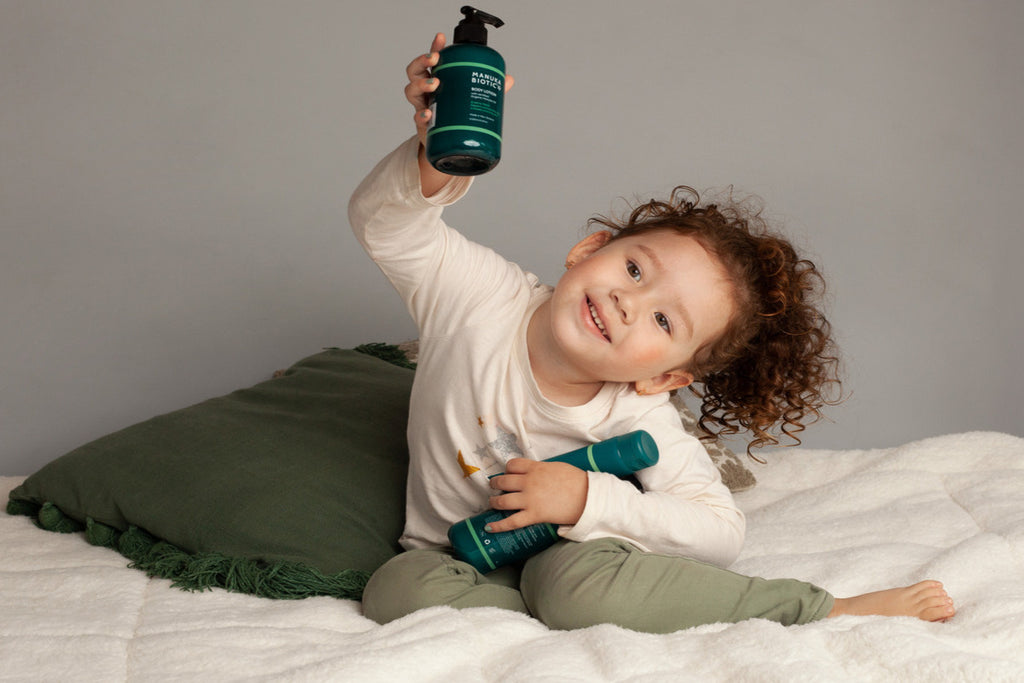Dealing with Impetigo, commonly known as "school sores," can be a concern for parents, especially during warmer months. Caused by Staphylococcus or Streptococcus bacteria, this contagious skin condition can affect kids, even those with perfectly healthy skin.
Getting to Know School Sores: The Basics
Recognising School Sores Telltale Signs
- Itchy, Red Skin: School Sore's otherwise known as Impetigo often begins with itchy and red skin, which may be mistaken for a harmless rash.
- Blisters Galore: Clusters of small, fluid-filled blisters can form, typically around the nose and mouth.
- Oozing Blisters: As the infection progresses, blisters can burst, releasing contagious fluid.
- Crusty Layer: The affected area forms a raised, wet-looking crust during healing.
- Healing Scabs: Crusts dry up, leaving behind healed skin.
When Things Get Serious
In rare cases, where a larger skin area is affected, additional symptoms like fever or swollen lymph glands may arise. If noticed, seek medical attention promptly.
Diagnosis and How to Treat It
Experienced doctors can diagnose Impetigo by appearance or swabbing blisters for bacterial confirmation. Treatment often involves prescription antibiotic ointments, antibacterial creams, or tablets.
Taking Care of School Sores at Home
If your child has School Sores (Impetigo), here's what you can do at home:
Keep It Clean
Wash sores every 8 to 12 hours with antibacterial or antiseptic soap. Try our Calming Body Wash, infused with certified organic Mānuka oil, for all-over body cleansing.
Dry It Thoroughly
Pat sores dry with a clean towel after each wash.
Using a Natural Moisturiser
Apply Eczema Relief Body Lotion, made with certified organic Mānuka oil, to soothe and repair dry, irritated skin.
Cover It Up
Use a waterproof occlusive dressing if needed.
Seek Help
Consult a doctor if things worsen or if your child develops a fever.
Change Those Linens
Swap out sheets, towels, and clothes daily and add a few drops of Mānuka oil to the wash for cleanliness.
Preventing the Spread of Impetigo
Since School Sores are highly contagious, follow these steps to prevent its spread:
- Wash Those Hands: Encourage regular handwashing with soap or our Calming Body Wash.
- Keep 'em Home: Keep your child home until treatment is underway and they're no longer contagious.
- Trim Those Nails: Discourage scratching by keeping fingernails short.
- No Touching!: Advise against touching or scratching sores and consider using a crepe bandage if needed.
- Clean and Cover: Keep affected skin clean and cover it with soothing Eczema Relief Body Lotion or a waterproof dressing.
Impetigo and Newborns: A Special Caution
School Sores (Impetigo) poses extra risk for newborns, so keep anyone with it away from your baby and seek medical help if needed.
Natural School Sores Solutions
Understanding Impetigo's nuances, symptoms, natural solutions, and preventive measures is crucial for your family's well-being. Follow these guidelines to manage Impetigo effectively and keep your loved ones' skin healthy.
SOURCES
1.
Dr. Kate Quirke, Senior House Officer at Rotorua Hospital, New Zealand, authored the article on Impetigo, with copy editing by Gus Mitchell in March 2022. The previous author was Honorary Associate Professor Amanda Oakley, a Dermatologist at Waikato Hospital, New Zealand. DermnetNZ. Available here.
2. Dr. Amy Stanway MB ChB, Registrar at the Department of Dermatology, Waikato Hospital, Hamilton, New Zealand in 2001, updated by Dr. Jannet Gomez, a Postgraduate Student in Clinical Dermatology at Queen Mary University London, United Kingdom, with Chief Editor Dr. Amanda Oakley, a Dermatologist based in Hamilton, New Zealand in December 2015, contributed to the article on Methicillin-resistant Staphylococcus aureus.
DermnetNZ.Available here.
3.
Dr. Amy Stanway MB ChB, a Registrar at the Department of Dermatology, Waikato Hospital in Hamilton, New Zealand, authored the blog on Streptococcal skin infection. DermnetNZ. Available here.














